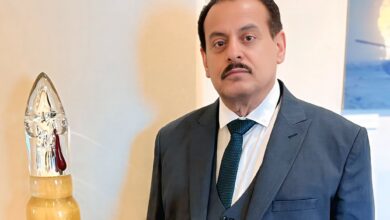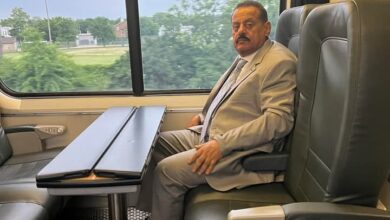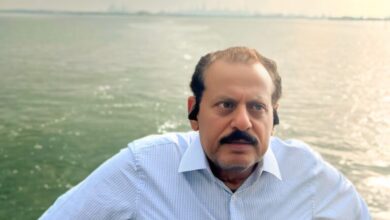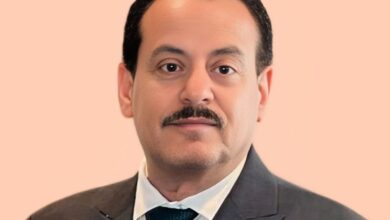Salmeen and Fatah
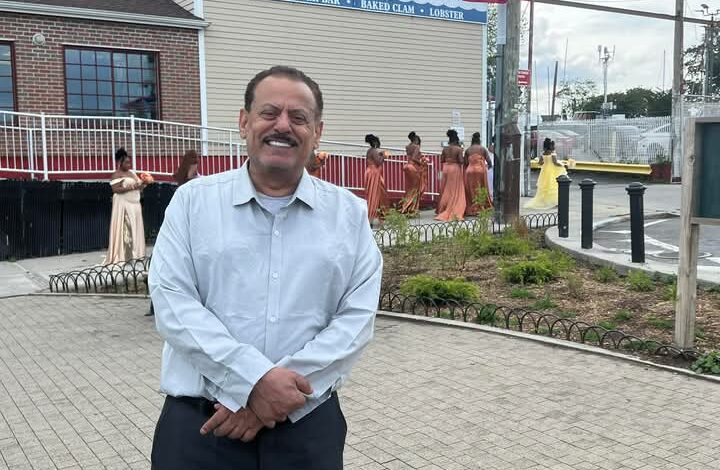
Yemeni mp
Ahmed Saif Hashed
In what was likely my second year of middle school, we were taken out of class to welcome President Salmeen and the Secretary-General of the Political Organization, Abdul Fattah Ismail, who, though equally important, lacked the first’s popularity and appeal. We left the school filled with joy and excitement, eager to greet them on a day that felt extraordinary, especially for the center that had mobilized its soldiers, officers, and officials, alongside a large crowd of citizens to receive these esteemed state figures.We, the students, lined up in organized rows, eventually forming two lines along the road stretching from the center’s gate for over a kilometer in the direction of their arrival.
My spot in the line was adjacent to the newly established hospital, a gift from Kuwait, named after the pilot Ali Moqbel Al-Jaledi from the northern region of Ma’abaq, who had studied, graduated, and was martyred in the south. I recall that two of his brothers were my classmates in the same school.
I waited patiently, my heart racing with anticipation to catch a glimpse of Salmeen and Abdul Fattah Ismail. I kept telling myself that such an event or opportunity would not come around again in my lifetime. However, what unfolded was the worst possible outcome. This chance, this wish, was marred, and no other opportunity arose.
I yearned to boast and flaunt before my peers in the village—one that knew neither presidents nor visits—that I had seen the beloved President Salmeen and the brilliant thinker Abdul Fattah Ismail face to face. The mere sound of their names was astonishing and captivating, so how much more thrilling would it be to recount how they passed just a few meters in front of me, waving in greeting and salutation?
As I awaited their arrival, it felt as though history was honoring me with the chance to witness two of its makers. I wanted to tell my friends in the village: “I have gazed upon those whom your eyes long for. I have seen what you have not. I have glimpsed knowledge that is beyond your grasp.” I wanted to retaliate against my peers, recalling the childhood days when they boasted of visiting the sacred shrines of Al-Khader, Al-Yass, and Saeed bin Abdan, as if they were speaking of space travel, while I stood there, bare and despondent, silently chewing on my wounds and regrets under the weight of heavy sorrow.
I was poised to catch a glimpse of the President and the Secretary-General as they approached closely, hoping they would pass by at a leisurely pace so I could absorb their appearance as much as possible, storing their faces and many details in my memory. This was the first time in my life that I would see the President and the Secretary-General directly, yet the wait stretched on unbearably under the scorching sun, their arrival delayed beyond the appointed time.
On the opposite side of the line stood a group from the Tor Al Bahah area, with whom I had clashed more than once and who had often provoked me. There was a boyish animosity and a defiant challenge between us; they resembled a lurking gang. Whenever I spotted them, I felt out of place, as though I did not belong to that land, and perhaps they sensed that I was an intruder, stirring their curiosity and irritation.
They kept eyeing me, mocking and ridiculing me, laughing at my expense while challenging me. In response, I summoned my courage and said, “Choose one of you to fight me, head-to-head.” One of them stepped forward, a stocky figure, radiating health like the sun. He was broad-shouldered, with thick, blond hair and fair skin, resembling the children of the English. In contrast, I was thin and weary, frail and suffering from malnutrition. As I observed the stark disparity between us, I thought to myself: perhaps the knife I carried could level the playing field or tip the scales in my favor.
I suggested we move to a nearby sand hill, about 200 meters away, to ensure no intervention could aid either of us. His friends were confident that victory was theirs, certain and without doubt; there was no comparison between us. If a comparison had to be made, it was entirely in favor of my opponent.
His friends climbed to the top of the sand hill, or rather, ascended the nearby sand outcrop to witness the clash. I concealed a small, thin knife—used for cutting roti—that I had bought a few days earlier, as a defensive measure for a potential emergency, especially since they had been lurking around me like a gang in the past few days.
We arrived alone at the place we had chosen for the duel. Perhaps I was cowardly and cunning, perhaps I wanted to avert a bitter defeat that seemed all but certain. He was overwhelmed with confusion as I swiftly drew the knife and lunged at him, stabbing him in the abdomen. He fled in terror, shouting, “Knife! Knife!” while I pursued him, attempting to stab him in several places. The thin blade had been deflected when I aimed for his strong head as he ran. I sensed that any hesitation in my pursuit could completely shift the balance of the fight in his favor, leading to a more severe retaliation. Thus, I refused to give him such an opportunity, while his friends were left disoriented and confused.
Two teachers rushed to his aid, wresting the knife from my grasp and holding me tightly, as the police would a criminal. When I glanced at my opponent, who was screaming threats of death, I was shocked to see the amount of blood soaking through his white shirt. I had not realized that so much blood could gush from his abdomen so quickly and abundantly.
The blood flowed in a way I never expected. I began to feel the weight of my actions, engulfed by regret and sorrow for him. A deep anxiety crept in, fearing that things might escalate to tragedy. I recognized my recklessness and foolishness; the gamble and challenge, ill-timed, could transform a person from someone decent into a criminal and a killer. I could have simply brandished the knife in his face to prevent what had happened, even if it made me appear more cowardly.
They took him to the hospital, and I was sent to prison, filled with deep regret. I regretted my actions, mourned the injury, and felt an even greater sorrow for the missed opportunity to see President Salmeen and Abdul Fattah Ismail, who had arrived after I had already been incarcerated. The chance I had long awaited slipped away, never to return.
Just as my disappointment that day was foolish and bloody, I grieved deeply when blood marred the legacy of those great comrades. It felt as though what happened to me that day was an omen, echoing endings that should have been long and bright. Yet fate had spoken, a truth we could have anticipated but failed to account for. We all miscalculated, and those endings turned out to be tragic, regrettable, and reckless.
They took him to the hospital, and I was sent to prison, overwhelmed by deep regret. I lamented my actions, mourned the injury, and felt an even greater sorrow for the lost opportunity to see President Salmeen and Abdul Fattah Ismail, who arrived after I had already been taken away. The chance I had long awaited slipped away, never to return again.
Just as my disappointment that day was foolish and bloody, I grieved profoundly when blood tarnished the legacy of those great comrades. It felt as if what happened to me that day was an omen, foreshadowing endings that should have been long and bright. Yet fate had its say, a truth we could have foreseen but failed to account for. We all miscalculated, and those endings turned out to be tragic, regrettable, and reckless.
* * *


